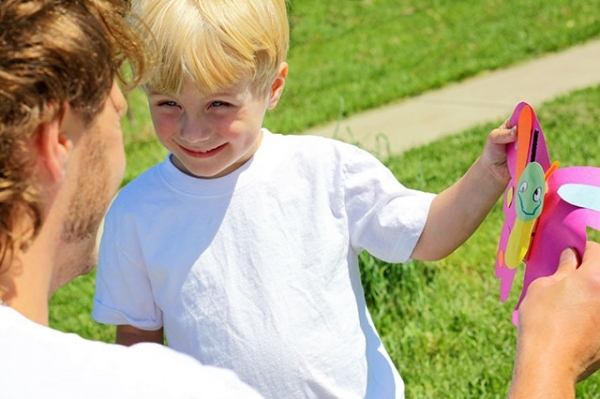Is Praise Bad for Children?
by Rebecca EanesContinued...
I adore the work of Mr. Kohn, and I believe he makes some very good points which are certainly worth consideration. I fear, however, that we may go too far in the other direction, fearing to offer any support or encouragement to children whatsoever. Even though Mr. Kohn does state that children DO need unconditional support with no strings attached, I wonder if perhaps that part of his message is getting lost. I'd like to bring it to light with these parenting tips.
##ad##
Real appreciation and encouragement are different from praise. Rather than offering a “good job” for picking up their toys, genuinely acknowledge that the action was helpful. This real appreciation isn't a scheme to manipulate the child into picking up her toys again, but rather acknowledgment and gratitude expressed without conditions.
What's the difference? Here are some examples of empty praise versus genuine encouragement:
- Praise: “Good job picking up.”
- Encouragement: “I noticed you placed your toys back in the bin. That was helpful. Thank you.”
- Praise: “Wow! You're an amazing artist!”
- Encouragement: “I see you put a lot of work into your painting. The way you painted this bird purple makes it really pop out. What do you think?”
- Praise: “Great job on this report card!”
- Encouragement: “You clearly put in a lot of work this semester. I appreciate your efforts at school. How does this report card make you feel?”
##adbig##
The goal is two-fold, in my opinion. One – we want children to be capable of feeling good about themselves and their achievements without someone having to give outside approval for that to happen. So, teaching children to think and evaluate for themselves and do what feels good within is a good place to start. Second – it's important for children to know that we love and support them no matter what. They need to know that our love and approval are not based on great report cards or perfect paintings or clean rooms, but are freely given without conditions. Not withholding love or approval when they aren't pleasing us is a good place to start with this goal in mind.
To avoid the pitfalls of praise, practice simply stating what you observe and offering sincere appreciation, but more importantly, make sure each child knows that he or she is loved, valued, and accepted, no matter how good the job was.

You might also like.













